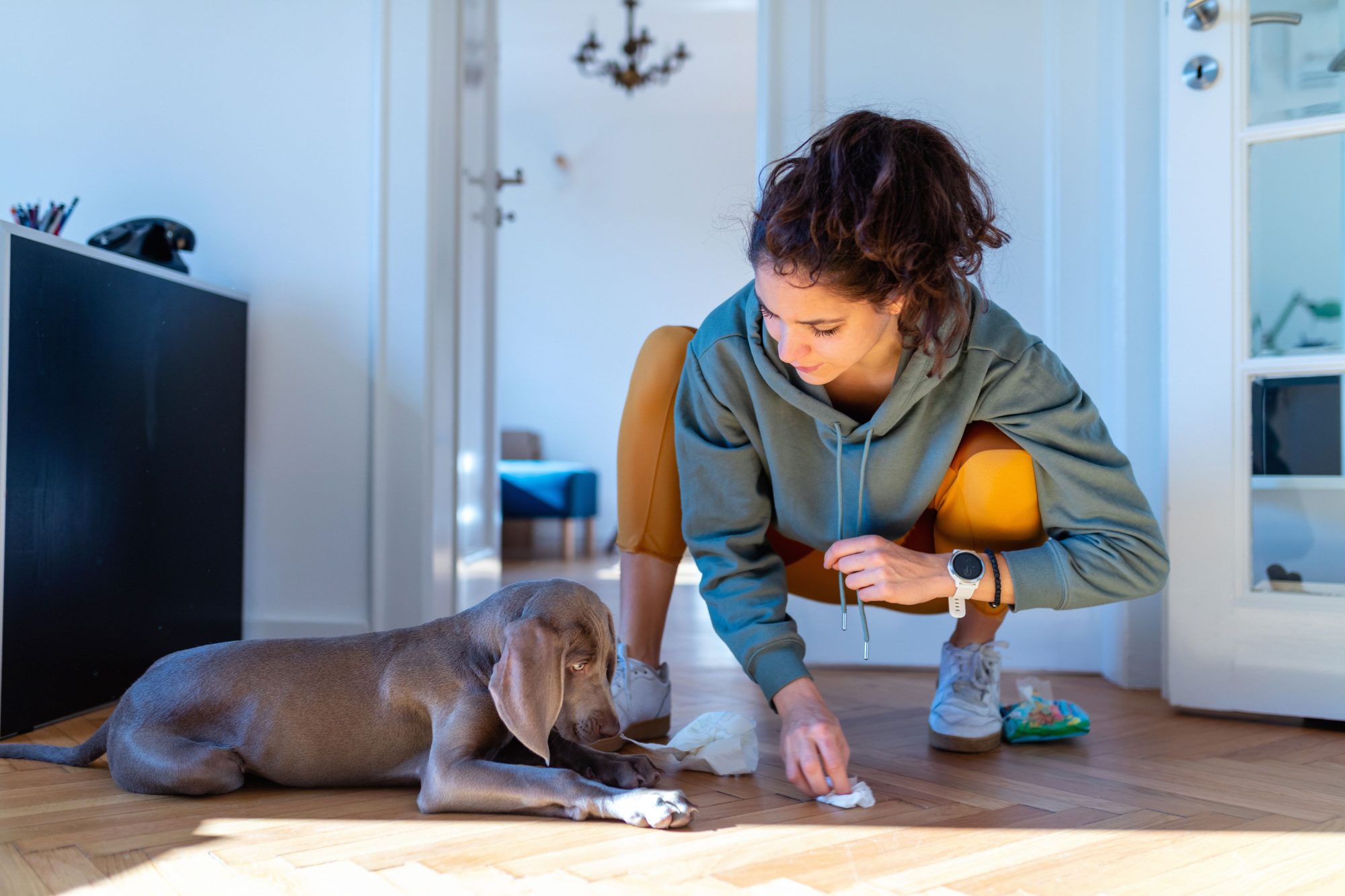Repetition, Consistency, and Puppy Potty Training

Meeting the needs of a growing puppy can be a full-time job. While their needs are so great and abundant, the rewards are immensely satisfying and far-reaching and you will not regret the effort you put in.
When it comes to puppy potty training, mistakes, missteps, accidents, and exasperation are par for the course. The keys to your success? Love, patience, and respect will get you started, but effective methods hinge on consistency and repetition.
Establishing a Routine
First, choose a specific place that will be your puppy’s designated bathroom spot. When you bring them outside (either on-leash or in arms), take them to the spot every time until they are trained. When you arrive, always use the same phrase, such as “go pee,” “potty time,” or, simply, “bathroom.” This may take numerous repetitions until they get it, but when they do eliminate it, give them a treat immediately and loads of praise.
Say What?
Puppies need bathroom opportunities within 15 minutes of waking up, eating, drinking, playing, and going to bed. Until they are about 4 months, they’ll likely need to go outside every 2 hours or so (some might make it to 3 hours). Once they learn to sleep through the night, or between 4-6 hours at a time, you’ll be able to see further evidence of bladder control during the day.
In the Meantime
If you miss the 15-minute window, watch their behavior closely. When they have to go, they’ll start to sniff around, walk in circles, whine, and look at known exit points. Pick them up ASAP and take them right to the bathroom spot. Encourage them to go. Play with them, offer water, and try again in 10-15 minutes.
It Will Happen
Accidents are going to happen inside the home, car, or maybe on you while you’re holding them. Never scold or punish them. Stay neutral and calm, reassure them, and ramp up the same puppy potty training routine as before.
Spay an enzymatic cleaner on any accidents to deter them from going there in the future.
Crate Expectations
Minimize your puppy’s “roam zone” until demonstrated success. Keep them in a certain area of the home by using baby gates or doors. They will have fewer accidents in areas that they recognize as part of their den, which is why crate training is so effective at teaching bladder control.
Make your puppy’s crate as comfortable and supportive as possible so they’ll want to enter it on their own. If you do have to leave them for an hour or two at a time, be sure they go potty beforehand.
Effective Puppy Potty Training
Your schedule should be the same every day, as much as possible. Even slight variations to the routine can be very disruptive to puppy potty training.
Set alarms every day for waking up, bathroom breaks, exercise times, play times, meal times, and bedtime. When they sound, tell your puppy what time it is. The trust they have in your shared schedule will be very comforting.
If you have additional questions about puppy potty training, feel free to call us at (916) 939-1705. We can’t wait to meet your puppy!

